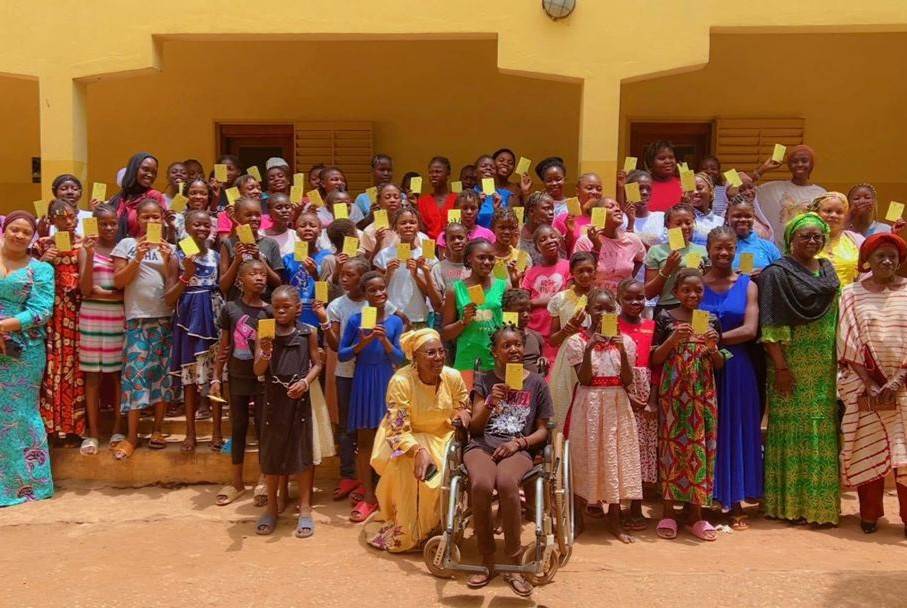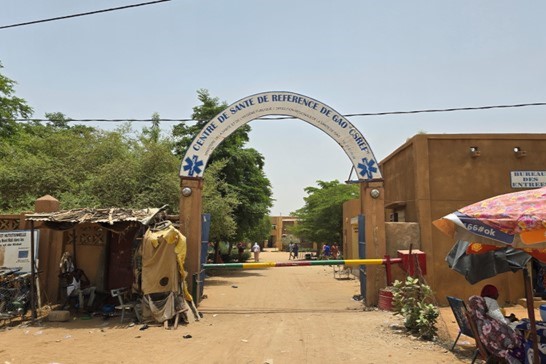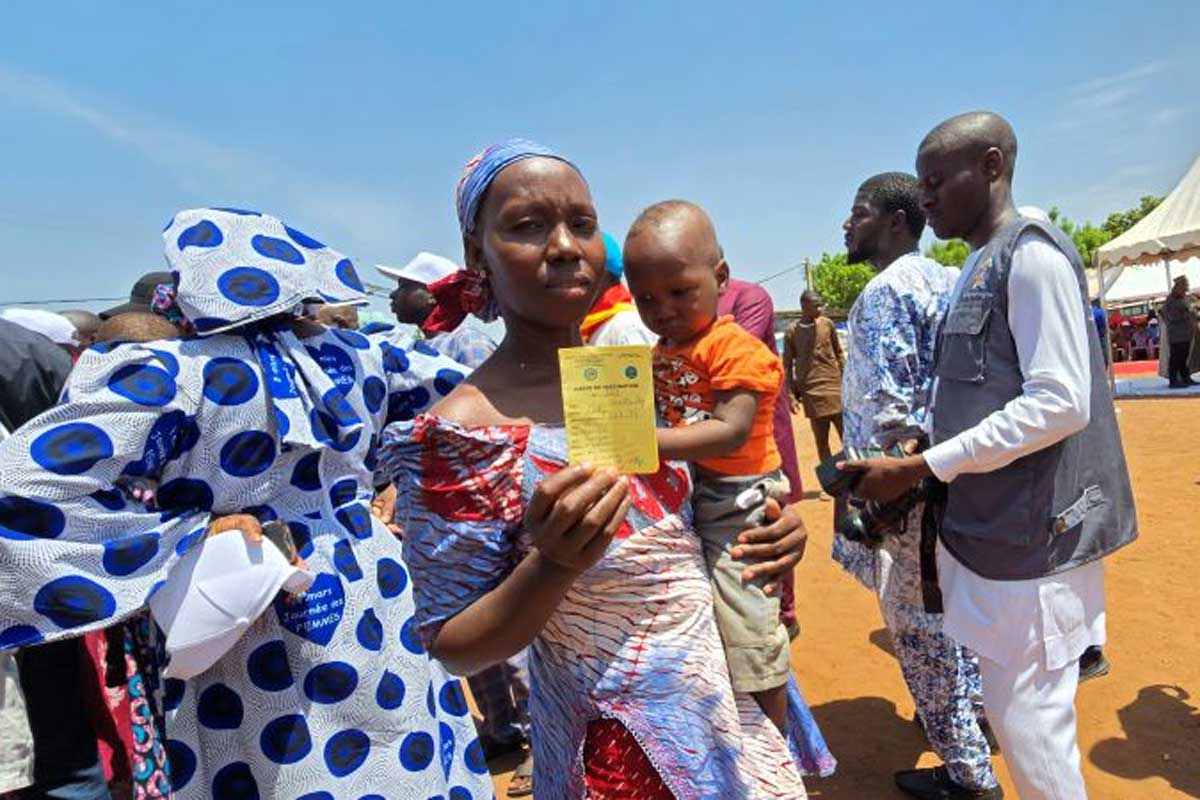Mali rolls out cancer-blocking jab
The Sahelian country will offer the human papillomavirus (HPV) vaccine for free to as many as 320,000 girls each year.
- 21 November 2024
- 5 min read
- by Aliou Diallo
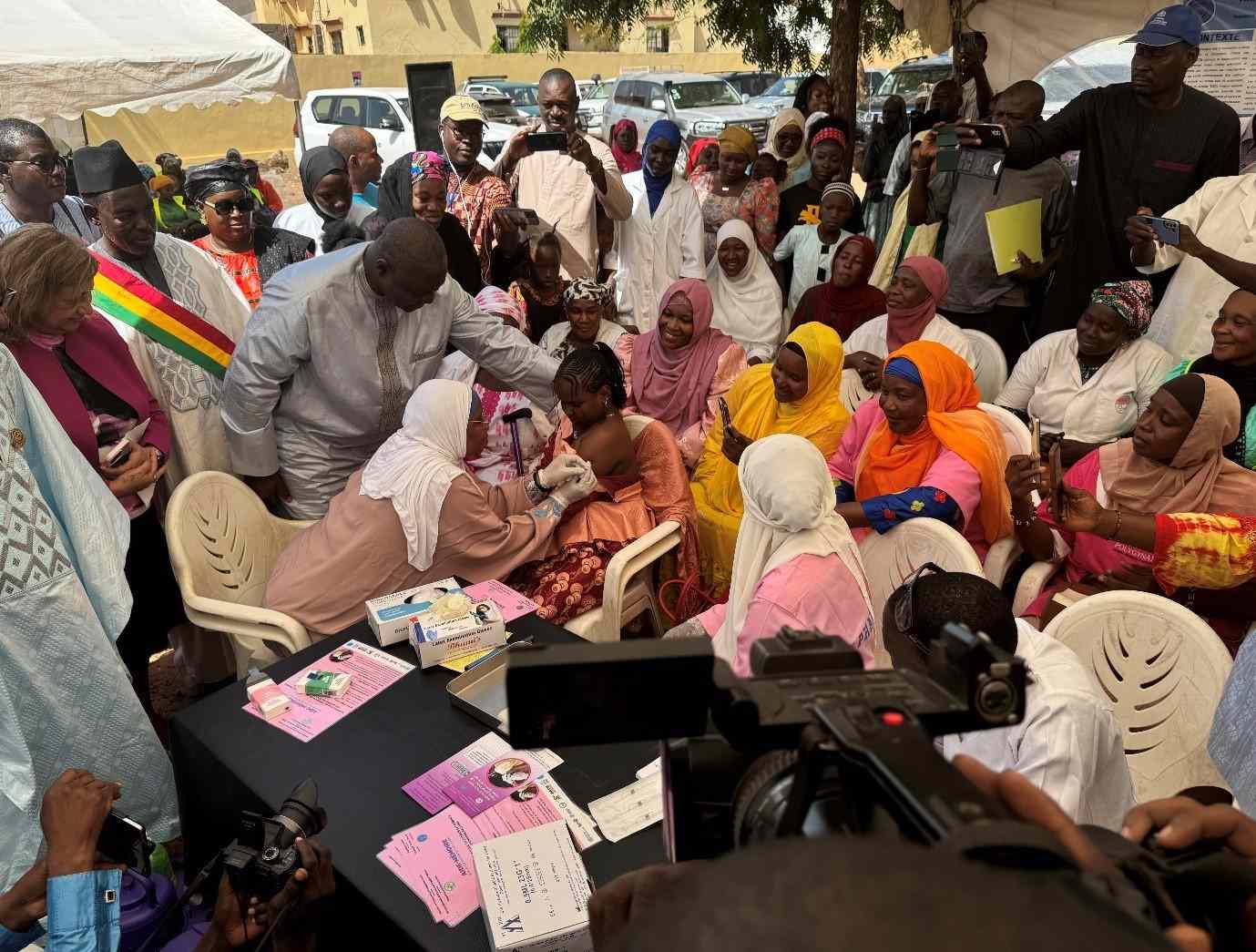
In a historic move, the government of Mali has introduced the human papillomavirus (HPV) vaccine into its routine immunisation programme. During a ceremony held in Bamako earlier this month, and attended by numerous dignitaries and international partners, Gavi and the Ministry of Health and Social Development emphasised the importance of this initiative, terming it a significant step forward in preventing cervical cancer among Malian women.
Cervical cancer remains a devastating burden for many Malian women. Thirty-eight-year-old Fatoumata is one of the many affected. Although she survived, her battle with the illness had major personal and financial repercussions.
The vaccine is now rolling out for free to young girls, thanks to support from Gavi and co-funding by the Malian government. Mali aims to vaccinate more than 320,000 girls annually, potentially reducing cervical cancer cases by nearly 90%. This could, in turn, prevent over 3,600 deaths annually among Malian women.
"I initially had a fibroid and delayed treatment. It was only after I started bleeding that I underwent surgery. After the operation, I began experiencing discharge – clear, odourless, water-like. I went to my gynaecologist, and tests revealed I had cervical cancer. I spent between 5 and 6 million CFA francs [about US$ 8,000–9600] on treatment, with the operation alone costing 2 million [about US$ 3,200]."
The burden of cervical cancer in Mali
Cervical cancer, caused in the vast majority of cases by persistent infection with certain types of HPV, is a major public health concern in Mali. It is the second-most common cancer among Malian women aged 15 to 44. Often diagnosed too late, it continues to claim thousands of lives annually in the country.
Beyond challenges surrounding access to care, cultural taboos often prevent women from discussing their symptoms openly. Common beliefs sometimes link such illnesses to curses or witchcraft, delaying diagnosis and worsening outcomes. "Cervical cancer is sometimes seen as a curse cast by a co-wife, sister-in-law, or former partner," explained one Malian sexual and reproductive health activist.
A major milestone: introducing the HPV vaccine
During the HPV campaign launch in Bamako, Dr Ibrahima Diarra, Director of Mali's National Immunisation Centre, highlighted the significance of this development:
"A single dose is enough to protect a ten-year-old girl for over ten years against the viruses responsible for 70% of cervical cancers."
The vaccine is now rolling out for free to young girls, thanks to support from Gavi and co-funding by the Malian government. Mali aims to vaccinate more than 320,000 girls annually, potentially reducing cervical cancer cases by nearly 90%. This could, in turn, prevent over 3,600 deaths annually among Malian women.
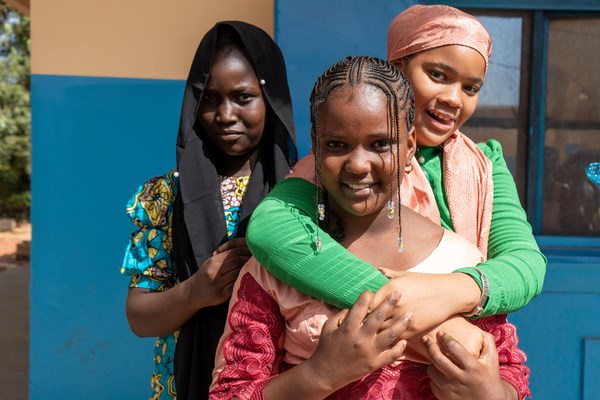
© UNICEF/UNI673856/Borra
A step towards health equity
This vaccination programme represents a major stride toward health equity. The vast majority of cervical cancer deaths occurring in low-income countries. In 2022 alone, as 348,000 deaths were recorded globally, 90% of them occurred in poorer contexts. With this public roll-out, Mali is ensuring prevention is accessible to all girls, regardless of their location or socioeconomic status.
Have you read?
Dr Diarra explained why the programme focuses on ten-year-old girls: "We chose this age group because their cervixes are still healthy, well before the onset of sexual activity, ensuring maximum vaccine effectiveness." This approach aligns with the World Health Organization's recommendation to prioritise the vaccination of young adolescent girls aged 9–14.
By preventing cervical cancer, the introduction of the HPV vaccine also reduces the high costs associated with treating the disease.
Mali stands out as one of the first Sahelian nations to offer the cancer-blocking jab as routine, setting an example for other countries in the region.
Mali stands out as one of the first Sahelian nations to offer the cancer-blocking jab as routine, setting an example for other countries in the region. It is a significant step towards Gavi's target of vaccinating 86 million girls in low- and middle-income countries by 2025.
This story was translated from the French. Read the original version here.
